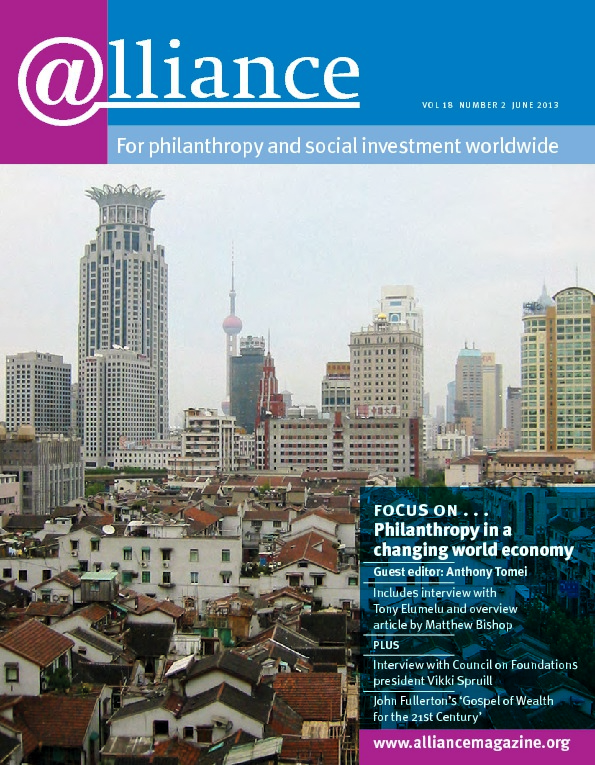No, we do not think the crisis began on 15 September 2008 when Lehman Brothers went belly up. We believe that in both North America and Europe this was a symbolic date. The social problems that are now so dramatically emerging, and the alarmingly widening gap, in terms of income and wealth, between the rich and the middle class and the poor, have earlier and deeper roots, which were disguised in the first years of the millennium by economic growth fuelled by the bubble of the financial and real estate markets.
 Now the financial crisis – with surging unemployment and shrinking welfare resources – is taking its toll; poverty is affecting more and more people (over 18 per cent in Italy), restricting their access to housing, health, credit and other social services. Moreover, this is a structural change; it is not a short- or medium-term crisis.
Now the financial crisis – with surging unemployment and shrinking welfare resources – is taking its toll; poverty is affecting more and more people (over 18 per cent in Italy), restricting their access to housing, health, credit and other social services. Moreover, this is a structural change; it is not a short- or medium-term crisis.
Grantmaking and the traditional tools of philanthropy continue to be the only way to subsidize government attempts to address the needs of the most impoverished, but philanthropy’s resources are too small to fund the less dramatic but growing needs of emerging poverty as well. We believe that a different tool like impact investing can be a more effective response here, and this is why Oltre Venture has now invested more than €10 million in social housing, microcredit, health and social services, creating over 100 new jobs and serving more than 1,500 people in social housing, 3,000 in microcredit and 12,000 in health every year. Oltre Venture is the offspring of Fondazione Oltre, a grantmaking foundation. The decision to focus on impact investing came in 2005. Even before the crisis erupted, it was clear that social problems were going to grow and new tools to address them had to be found.
The success of the Italian approach to impact investing has some basic ingredients: a well-defined strategy with clear targets and attainable objectives; a strong entrepreneurial spirit and competent management; a sustainable business model which can compete in the market; and the ability to monitor and measure social impact. But our experience has also revealed some other factors that could be a catalyst of growth outside Italy as well. Oltre has been able to attract high-quality people, animated by genuine altruism and eager to be involved in enterprises pursuing social impact. High quality of management and staff is paramount in leading innovation and delivering effective services at the lowest possible cost.
Another key factor is the cooperation we have enjoyed from our partners: many foundations have invested and shared their expertise with us; a large international bank is our partner in microcredit; public institutions have entrusted us with assets and helped us to develop social housing. Cooperation among the largest possible group of stakeholders is a must if you want to succeed in addressing issues of such importance and size. At present the response is limited because impact investing requires a major change of strategy and culture – particularly among public institutions, which also lack the competence required to work in partnership. But the crisis is acting like a catalyst in this regard. It is not a rapid change, but the start of a virtuous process.
Finally funding – or better leverage – can be crucial in addressing emerging poverty. If you put money into the hands of a professional impact investment manager, you know that you are running a risk (albeit often smaller than the risk offered by many financial investments) and that your return will be low. But you also know that your money is not going to be ‘consumed’ as it is in traditional philanthropy. It becomes ‘capital at work’ which continues to create value after it is paid back.
Italy is not big in donations, but it is big in voluntary work and private savings. Our dream is to mobilize both, promoting cooperation with the third sector and social responsibility in the use of financial resources. Large Italian foundations could be leaders in investing in impact investment equity and bond issues and in selecting fund managers. Italian banks – which count many foundations among their largest shareholders – should act pro bono as brokers of investments with social impact. With the support of other European foundations and their associations, we should continue to press European authorities to facilitate the investing process and increase their own role in impact investing.
Mobilizing Italian private savings and attracting funding from institutional investors would create enormous leverage in terms of economic development, employment growth (particularly among young people) and social welfare at a time when all these are desperately needed.
Luciano Balbo is founder of Oltre Venture. Email luciano.balbo@oltreventure.com
Massimo Lanza is executive director of Fondazione di Venezia. Email M.Lanza@fondazionedivenezia.org






Comments (0)